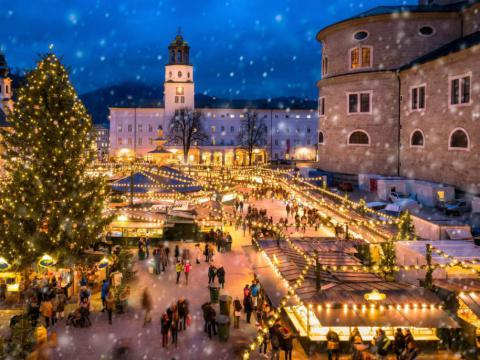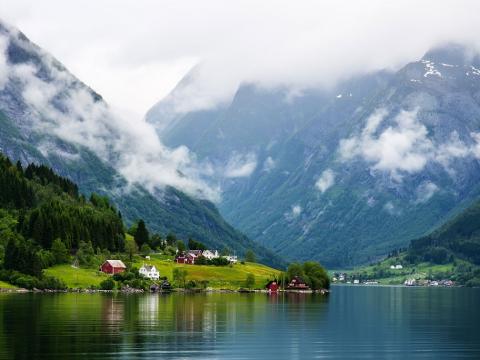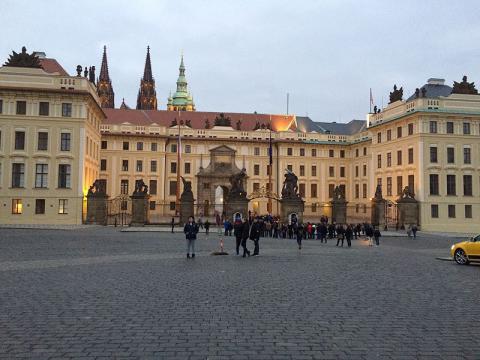Introducing Austria
Nestled in the heart of Europe, Austria is a country that captivates with its breathtaking landscapes, rich history, and vibrant culture. This landlocked nation, often associated with classical music, alpine ski resorts, and imperial palaces, has a unique charm that has been attracting travelers for centuries. In this essay, we will explore the diverse facets of Austria, from its geography and history to its culture and contributions to the world.
Geography
Austria's geographical diversity is one of its most defining features. The country is primarily located in the Central European region, sharing its borders with eight countries: Germany, the Czech Republic, Slovakia, Hungary, Slovenia, Italy, Switzerland, and Liechtenstein. The stunning Austrian Alps dominate the western and southern parts of the country, while the Danube River, one of Europe's major rivers, winds its way through the eastern regions.
The Alpine region offers a playground for outdoor enthusiasts, with world-class skiing and snowboarding resorts like Kitzbühel and St. Anton am Arlberg. In the summer, the Alps transform into a hiker's paradise, offering pristine lakes, lush meadows, and challenging mountain trails. Austria's geography ensures that there is something for everyone, whether you seek adventure in the mountains or prefer the cultural attractions of its cities.
History
Austria's history is a tapestry of empires, dynasties, and cultural movements. The country's roots can be traced back to the Celts and Romans, but its modern identity began to take shape during the Habsburg Monarchy. The House of Habsburg, which ruled over Austria for over six centuries, played a pivotal role in shaping the country's culture and identity. Vienna, the capital, was the heart of the Habsburg Empire and remains a testament to its grandeur.
The Habsburgs left an indelible mark on Austrian architecture, art, and music. The Schönbrunn Palace, a UNESCO World Heritage Site, is a prime example of their opulent taste in architecture. Austrian composers like Wolfgang Amadeus Mozart, Ludwig van Beethoven, and Franz Schubert composed some of their most iconic works during the Habsburg era, making Austria synonymous with classical music.
The 20th century brought tumultuous times for Austria, including annexation by Nazi Germany in 1938 and occupation by Allied forces at the end of World War II. However, in 1955, Austria regained its sovereignty and declared permanent neutrality, a stance that continues to define its foreign policy.
Culture
Austria's cultural heritage is a testament to its rich history and artistic contributions. Vienna, often referred to as the "City of Music," boasts a thriving classical music scene. The Vienna State Opera, home to world-class performances, and the Vienna Philharmonic Orchestra, renowned for its annual New Year's Concert, are symbols of Austria's musical prowess.
Austrian cuisine is another aspect of its culture that deserves attention. Wiener Schnitzel, Apfelstrudel, and Sachertorte are just a few of the delicious dishes that have made their way into international cuisine. Austrian coffee culture, with its elegant coffeehouses, provides the perfect setting to savor these culinary delights.
The country's love for the arts extends beyond music and food. Vienna's museums, including the Kunsthistorisches Museum and Belvedere Palace, house priceless art collections that span centuries. Austrian literature, with authors like Franz Kafka and Stefan Zweig, has made significant contributions to world literature.
Austria's cultural diversity is not limited to high art. The country has a rich tradition of folk music and dance, which are celebrated at numerous festivals and events throughout the year. The annual Vienna Opera Ball, held at the Vienna State Opera, is a glamorous affair that showcases Austria's love for music, dance, and tradition.
Contributions to the World
Austria's contributions to the world extend beyond its cultural heritage. The country has played a significant role in science, philosophy, and technology. Sigmund Freud, the father of psychoanalysis, was Austrian, and his groundbreaking work has had a profound impact on psychology and the study of the human mind.
In the realm of science and mathematics, luminaries like Kurt Gödel and Ludwig Boltzmann have left their mark with groundbreaking discoveries. Austrian-born physicist Erwin Schrödinger formulated the famous Schrödinger equation, a cornerstone of quantum mechanics.
Austria's commitment to environmental conservation is noteworthy as well. The country has made significant strides in sustainable energy production, particularly in harnessing the power of hydropower and wind energy.
Conclusion
In conclusion, Austria is a country that seamlessly blends its stunning natural landscapes with a rich cultural heritage. Its history, from the imperial grandeur of the Habsburgs to its resurgence as a modern, neutral nation, is a testament to its resilience and adaptability. Austria's cultural contributions, especially in the fields of classical music and psychology, have had a lasting impact on the world. Whether you are drawn to its majestic alpine scenery or its vibrant cities, Austria continues to enchant and inspire travelers from around the globe.
Last modified on 09/06/2023 - 00:42
Places 0
Currently there are no places in Austria.
Articles 1
Trip reports 0
Currently there are no trip reports about Austria.
Videos
Currently there are no videos of Austria.






